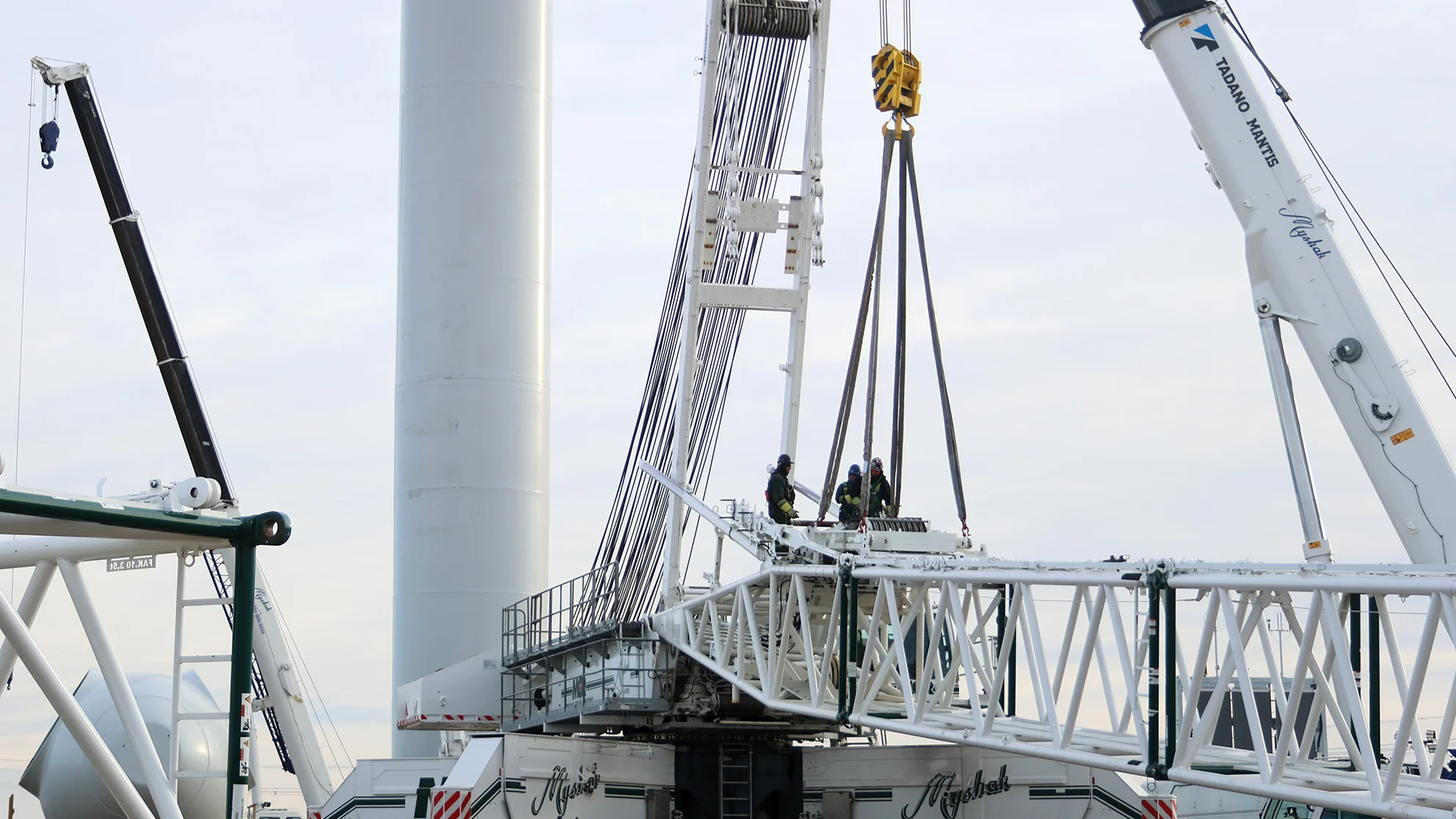
By combining powers, small Alberta towns can draw in renewable power projects
By pooling their markets and resources, a new report says small municipalities can punch above their weight in attracting wind or solar energy developments.
For small towns in Alberta, attracting renewable energy projects can be tricky.
Developers often want to build solar or wind farms near communities with larger populations — and more demand — and small towns may lack the funds, expertise and capacity to set up these deals, according to a recent report published by the Pembina Institute, the Business Renewables Centre-Canada, and the Municipal Climate Change Action Centre.
But the report also proposes a way around this issue, a concept its authors call aggregation. In short, the tactic involves several smaller, neighbouring communities partnering together to pool their resources, and the collective demand of their communities, to attract renewable energy developments.
Alternatively, several smaller communities can band together with a larger “anchor” community in this way, according to Binnu Jeyakumar, one of the report’s authors and the Pembina Institute’s electricity program director.
READ MORE: Huge growth potential for green jobs during Canada's energy transition
Jeyakumar and her co-authors surveyed 29 municipal staffers from 36 small communities in Alberta — anything that wasn’t Edmonton, Calgary, Lethbridge, Red Deer, or Medicine Hat. The team asked about each municipality’s climate goals, such as: interest in renewables, what barriers they faced in accessing them, and what they knew about the concept of aggregation, among other questions.
“What are some practical solutions for municipalities to invest in renewables, in a way that gives them the advantage that some of the corporate buyers have when they purchase renewables?” Jeyakumar told The Weather Network.
Jeyakumar noted that, in the survey, some respondents had never heard of the strategy before — by the name aggregation or otherwise — while others had discussed it. Around half of the 36 respondents said they were interested, and an additional 13 said they wanted more information before formulating an opinion. Somewhat surprisingly, nearly two-thirds of the communities expressed interest in renewable energy.
“People think of Alberta as the oil and gas province. We're so much more than that,” Jeyakumar said. “We're a renewable energy leader in Canada.”
WATCH BELOW: Why Alberta is becoming Canada's renewable energy capital
A quirk of the market
There are several benefits to the approach, she said. Some municipal governments have climate goals that access to renewable energy could help them reach, for instance. Bringing in a new development could also create building and operating jobs in the communities.
According to Clean Energy Canada, wind power is poised to be 40 per cent cheaper than gas powered electricity by 2030 in Alberta, while solar is already cheaper. However, power produced in Alberta ends up flowing into the province’s grid, meaning “you don't know where your electron came from,” Jeyakumar said.
“So, what lights up my bulb could have come from a solar plant, or it could have come from a coal power plant. I wouldn't know.”
But communities that aggregate together can enter into a virtual power purchase agreement (VPPA) with the renewable energy company. A VPPA is a contract in which an organization (like a municipality, or group of them) agrees to directly purchase some of a new project's energy, instead of going through the grid.
This would ensure that the power the communities use are actually coming from renewables, rather than fossil fuels, which are the source of 89 per cent of Alberta’s electricity.
The municipalities would also get a fixed price for the duration of the contract, which is ideal because wind and solar power are so cheap in the province, Jeyakumar explained.
“The price of electricity from a wind or solar plant remains quite constant. It doesn't go up and down like the price of oil or gas does,” she said.
While it’s possible some of the benefits for aggregation would hold true for other provinces, the VPPA aspect is more a quirk of Alberta’s deregulated energy market. Unlike other provinces with stricter regulations, the oil-rich jurisdiction allows groups to buy power directly from producers through things like VPPAs.
Aggregation far and wide
Aggregation in this way isn’t a new concept. For instance, in 2017, the municipal government of Melbourne, Australia, created the Melbourne Renewable Energy Project (MREP).
The city and 13 other local governments, universities, businesses, and cultural institutions pooled their resources to build a 80-megawatt wind farm, and to purchase power from it via a long-term agreement, creating “long-term price certainty, enabling customers to mitigate the risk of increased energy costs in a volatile market,” according to the city’s website.
WATCH BELOW: Can heat pumps handle Canada's coldest cities?
The strategy isn’t exclusive to governments either. For instance, in an April 4 meeting, the Edmonton Public School Board (EPSB) expressed interest in partnering with other nearby school boards or other types of organizations on a renewable energy project.
Christopher Wright, EPSB’s managing director of infrastructure, said that it would be a good opportunity and the school board would welcome the chance to look into it. (He added that the idea came up independently from the report on aggregation, which he was made aware of prior to speaking with The Weather Network.)
However, it’s still very early in the process, and the school board isn’t sure which organizations they would partner with, nor the energy project they would pursue. He added that there would need to be more internal discussions, feasibility studies, and various other steps first.
“Safe to say, though, I think that concept of aggregation — as it relates to public organizations — is something that you’ll see more and more organizations considering it moving forward,” he said.
Thumbnail image: Construction at TransAlta’s 130 MW Garden Plain wind farm, located near Hanna, Alta. (Rachel Maclean/The Weather Network)












